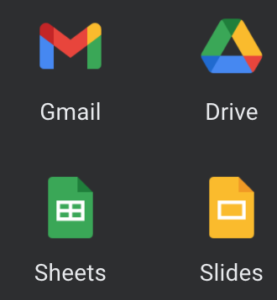Staying Organized in Graduate School
Staying Organized in Graduate School
Staying organized in graduate school is difficult because there is so much to do. It seems like there is a conveyor belt of things coming at you and just when you get into a routine, it speeds up.
I’ve worked as a clinical educator for over 10 years now. Everyone gets stressed at times, even the students who look calm! I’ll tell you a secret, clinical supervisors get stressed too.
Here are 7 tips I recommend to help you stay ahead of the game.
Do meal prep
I think most people would agree that healthy meals are one of the first things to go when one is feeling overwhelmed. Before I met my husband, who now does all the cooking, I did meal prep. I would prepare and freeze 6 weeks of meals at a time. All I had to buy during the week was fresh fruit and veggies. It saved me time cooking as well as grocery shopping.
My favorite website is ThrivingHomeBlog.com. One tip- buy smaller containers for freezing. Break up the meals into smaller batches so that when you defrost you have smaller portions.
Use a calendar
Believe it or not, I have had graduate students tell me they don’t use a calendar. I don’t know how this is possible, you cannot get through graduate school without a calendar. With Google calendar, you can create calendars for different projects, color code them, and even add emojis if you want.
As soon as you get a syllabus, add in dates of tests and assignments due. Take it one step further and add in times that you will start working on an assignment. For clinical practicums, make a daily schedule and include sessions as well as times for writing documentation, researching activities, and meeting with your supervisor. For school placements, add in IEP due dates and meetings. Also, add in times for showering and eating. It sounds silly but on really busy days, it helps me to track everything minute by minute. This also makes sure it gets done!
Use Google docs
Google docs is an amazing invention! Use Google docs for creating and sharing documents with members of your cohort. You can create a folder for class notes or group projects. Once someone has access to that folder, any document you add will be seen (no need to send numerous links and emails for each document).
Just remember that it is not HIPAA compliant, so client-sensitive information should not go in there!
Write SOAP notes before the session
Treat the SOAP note like a lesson plan. After a few sessions, you should have a template for your SOAP notes. Before the session, add the goals you are planning to target. Write as much as possible before the session and go back and fill in the data afterward. You will be halfway done with your SOAP note before the session begins.
Relieve stress
Make time to do the things that bring you joy and recharge you (and add those to your calendar). For some, that may be doing Zumba, running 10 miles a day, or watching YouTube videos in the student room. Be sure to find time to laugh and invite your friends along with you. They may need a reminder to have fun too.
Remember the goal
Graduate school is stressful but remember what your goal is. It’s the necessary path to prepare you to be an amazing clinician. Believe it or not, your professors and supervisors have been there too. We were in graduate school once.
Not only is graduate school teaching you to become an SLP, but it is also preparing you for a job. If you think two evaluations in a week is a lot, wait until you do three in one day on top of seeing regular weekly clients. If you can juggle coursework and clinic, you are on your way to juggling a full-time caseload. Graduate school is like a full-time job.

What organizational or stress management strategies do you use? Share in the comments below.


How can grief and trauma impact an individual’s ability to communicate effectively, and what strategies can speech and language therapists use to support clients through their healing process?”,
“refusal